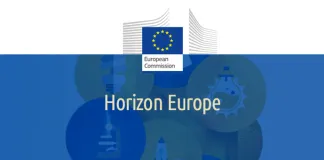GINNGER
Relevant project information
Dates
Project website
Role of CIRCE
Grant agreement number
Funded by

Description and objectives
GINNGER will facilitate the regeneration of neighborhoods and built environments through co-creation processes with diverse stakeholders. This will reduce social, environmental, technological and economic risks, delivering healthy, affordable and sustainable built environments in the EU. The project seeks to generate a positive social impact by validating the GINNGER co-creation methodology in 6 pilots with 21 regeneration actions.
It will focus on Langreo (ES), Plovdiv (BG), Massagno (CH), Murcia (ES), Orte (IT) and Paris (FR). It will introduce the 'Green Neighborhood Facilitator' to ensure participation and lead actions at the local level. In addition, it will develop and validate a digital toolkit that will include solutions for energy, renovation, resources and mobility, complementing the technical implementation of regeneration actions.
Value proposition
- Co-creation Methodology: We encourage active collaboration between local communities, authorities and experts to ensure the inclusion of diverse perspectives in the decision-making process.
- Lasting Participatory Processes: We establish long-term participatory processes to ensure sustainability and continuity of the actions undertaken, thus strengthening community engagement.
- New Business Models and Services for Neighborhood Regeneration: We develop innovative business models and services that drive neighborhood regeneration, promoting local economic growth and improved quality of life.
- GNF Guidelines and Training Materials: We provide guidelines and training materials based on Global Best Practices (GNP), ensuring effective implementation of regeneration strategies.
- Regeneration Actions Catalog: We offer a comprehensive catalog of regeneration actions to guide the implementation of effective and locally tailored interventions.
- Forecasting Module: We incorporate a forecasting module to anticipate trends and optimize long-term planning for effective and sustainable regeneration.
- Renewable Energy Integration and LCA Tool: We facilitate the integration of renewable energy with a Life Cycle Assessment (LCA) tool, promoting sustainable practices and reducing the environmental footprint.
- Flexibility Market Tool: We implemented a flexibility market tool that optimizes resource management, improving operational efficiency and reducing costs.
- Digital Twin Models: We develop digital twin models for project visualization and simulation, facilitating informed decision making and efficient planning.
- Air Quality and SRI Assessment Tools: We provide advanced tools to assess air quality and perform Social Impact and Risk Assessments (SRI), ensuring healthier and safer environments.
- Local Resource Mapping and Urban Mining Modeling: We develop tools to map local resources and model urban mining potential, promoting efficiency in resource and waste management.
- SUMP Tool (KER12): We implemented the SUMP tool for Sustainable Mobility Planning, ensuring efficient, accessible and environmentally friendly transportation.
- Intelligent Management System for Public Electric Vehicles (KER13): We developed an intelligent management system for public electric vehicles, optimizing the charging infrastructure and promoting the adoption of electric mobility.
- Optimal Planning Tool for Electric Mobility (KER14): We offer a specialized tool for optimal planning for electric mobility, facilitating the transition to a more sustainable transportation system.
Project partners
CERTH, UBITECH, CTIC, ENCO, AGIFLY, AGENCE PARISIENNE DU CLIMAT ASSOCIATION, SYDDANSK UNIVERSITET, AYTO LANGREO, FAEN, VIPASA, HUNOSA, FCA, ENERGY AGENCY OF PLOVDIV ASSOCIATION, OBSHTINA PLOVDIV, MIWE, AYTO MURCIA, FONDAZIONE BIO-DISTRETTO DELLA VIA AMERINA E DELLE FORRE ETS, COMUNE DI ORTE, RIMOND, ICONS, AZIENDA ELETTRICA DI MASSAGNO, SCUOLA UNIVERSITARIA PROFESSIONALE DELLA SVIZZERA ITALIANA, HIVE POWER.


